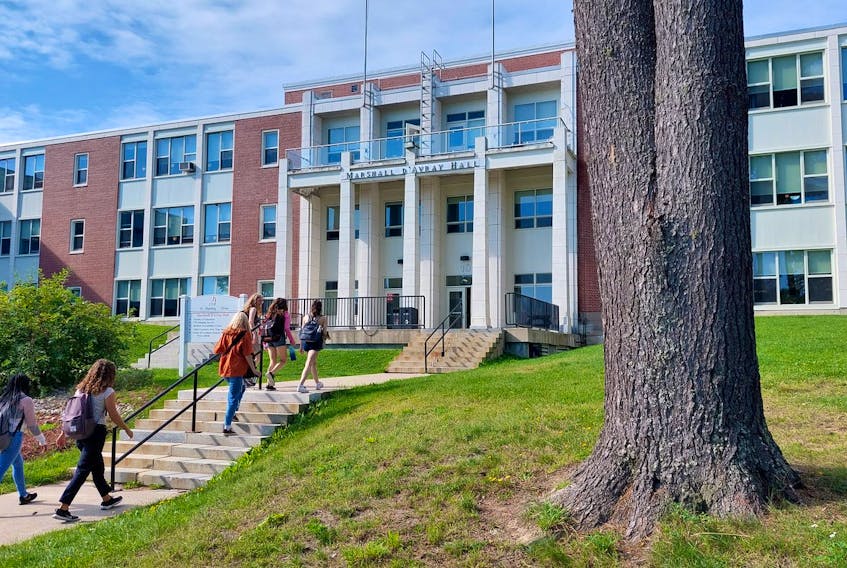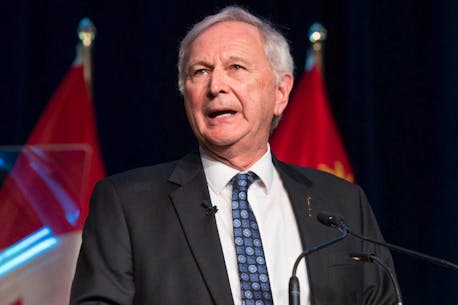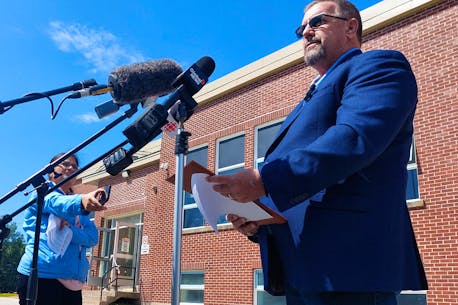Seventy-six professors from every major department in the faculty of arts want the Tories to revert to the original version of Policy 713
Contributed | Posted: Sept. 7, 2023


By John Chilibeck
Local Journalism Initiative Reporter, The Daily Gleaner
A large group of professors at the University of New Brunswick have signed a statement urging the Progressive Conservative government to go back to the original policy on gender and name changes at schools, arguing it made young students feel welcome and safe.
The 76 professors at the Fredericton campus belong to the faculty of arts and teach courses such as history, sociology and psychology.
“We stand with the educational experts, educators, parents, and child psychologists who helped to create the original version of Policy 713 based on their expertise,” the statement reads. “We insist that any changes to the policy be rooted in evidence-based research and not ideological positioning. Policy 713 does nothing more than ensure that New Brunswick’s education system creates a safe environment for all children and makes our children better citizens.”
But New Brunswick Education Minister Bill Hogan said Wednesday his government was not going to budge.
“Our government is, and always has been, dedicated to creating a safe and welcoming environment where all children are free to be themselves, while also respecting the role parents play in their child’s life and education,” he told Brunswick News in an email. “I am comfortable with the decisions made and the updated version of the policy.”
 Bill Hogan. - Local Journalism Initiative Reporter John Chilibeck
Bill Hogan. - Local Journalism Initiative Reporter John ChilibeckThe Tory government announced last spring it was making the controversial reforms. Among them, transgender students under the age of 16 who want to informally use a different name or pronoun will no longer be allowed to do so in the classroom without a parent’s permission.
Sabine LeBel, who teaches in the culture and media studies program at UNB, said many of the professors felt like they had to speak out because the Tory government was going down a dangerous, divisive path.
“The powers-that-be are definitely doubling down,” the professor said. “As a university, we believe in evidence-based research and human rights. And when you look at how the original Policy 713 came into place, it was put in by the current government with a lot of consultation from parents, educators and students. And when there was talk of changing it in the spring, a lot of experts, such as child psychologists and educators were saying, ‘Hey, the research states this is really important for LGBTQIA+ youth to have support in the school system, so they can actually learn.’”
LeBel, a lesbian, remembers what it was like when she was a kid in places like Montreal and Toronto and couldn’t tell people how she felt.
“There was none of this when I was growing up,” said LeBel, 50. “People didn’t come out until later in life when they left home. If they did come out early, the stories were pretty awful. I certainly would never have come out in any of my schools or to my parents, and it’s because there was out-and-out homophobia among teachers. It just wasn’t an option. People of my generation would have had a much better experience if we had had the right policies in the education system, like the original 713.”
She added that more people would be alive, as plenty of her friends have been lost to suicide because of the struggles they went through early in life, including a loved one who took her life a year ago to the day on Wednesday.
“She was a proud, out, queer person, and a community pillar,” LeBel said. “She was around my age and in spite of the love and support around her, she had these struggles.”
Canadian politicians stampeding away from policy of concealing gender transitions from parents

N.B. education minister doubles down on changes to gender policy

Organizations that support lesbian, gay and trans youth have condemned the Tory government's changes as trans and queerphobic, whereas parental rights groups argue teachers and school administrators should not decide whether it's OK for younger children to change their identities. Parents, they say, should be at the core of a child's upbringing.
When the reforms were announced in the spring, they created international headlines. Eight of 29 Tory MLAs expressed displeasure with the changes, and two cabinet ministers ultimately resigned, while Premier Blaine Higgs fired two others.
The change of the policy and other moves by the premier have led to a push among some party members to demand a leadership review.
The provincial governments in Saskatchewan and Manitoba have pledged to move ahead with similar reforms.
Sophie Lavoie, a UNB professor who spearheaded the drive to deliver the statement, said while not every academic signed it, the signatories were from every major department in the faculty of arts.
CCLA lawsuit asks court to quash parental consent rule in N.B.'s gender-identity policy
Revised policy gives parents a say in whether teachers can use students' chosen pronouns, names
The Canadian Civil Liberties Association has filed the first lawsuit against New Brunswick's changes to school gender-identity policy.
The suit follows Education Minister Bill Hogan's decision in June to change Policy 713 to make it mandatory for staff to get parental consent before using the chosen names and pronouns of children under 16.
Hogan said parents have a right to decide what pronoun is best for their children and should be able to control what name and pronoun teachers and staff use in verbal communication, regardless of the child's wishes.
He said if teachers grant a child's request for a specific name and pronoun, and the parents complain, then the teacher could face disciplinary action.
In court filings this week, the civil liberties group asks that a judge review and quash these specific changes and declare they violate LGBTQ children's charter and human rights.
The association also asks that a judge order the province to rewrite the policy and declare that it can't forbid the use of a child's chosen name or pronoun without parental consent.
"The rules require that teachers and school staff participate in the misgendering or deadnaming of students for indeterminate periods of time, even when this approach is against the advice of school social workers and psychologists," the lawsuit says.
(PDF 6150KB)
(Text 6150KB)CBC is not responsible for 3rd party content
"The changes to Policy 713 were made following a flawed and unfair process by a Minister who exhibited a 'closed mind' and a reasonable apprehension of bias."
The lawsuit says the policy violates children's charter rights to equality and non-discrimination because it requires their informal name changes to be denied until parents consent but doesn't have any requirements for kids who ask for a nickname to be used.
The suit says the policy also violates children's charter right of liberty and security.
"The revised policy removes decision-making power for mature minors and exposes them to a vague and convoluted process to have their personhood recognized," the suit alleges.
"The revised Policy 713 does not require teachers to use a 2SLGBTQIA+ student's preferred name or pronouns while they are engaging with a social worker or psychologist, even if that professional were to state that such use was clinically indicated and in the student's best interest."
It also alleges a violation of children's freedom of expression by making it less likely that they participate in class, or confide in a teacher who could sometimes be "the only trusted adult in a child or youth's life."
The association also asked the province to release the records that led to the development of the original policy in 2020, to the amendments in June 2023 and to the further amendments made by Hogan in late August.
A spokesperson for the Department of Education said it does not comment on current legal issues.
The civil liberties group said it wouldn't comment Friday but has scheduled a news conference in Fredericton for Monday.
The allegations have not been tested in court, and the province hasn't filed a statement of defence.
The filing made on Wednesday is the first step in a lengthy legal process. The association, as a group that's not directly affected, also has to prove that it has "public interest standing," on top of proving the main allegations.
More groups seek legal opinion
No date has been set yet for a hearing, according to the Fredericton Court of King's Bench.
Francophone and Anglophone district education councils have hired two different lawyers for a legal opinion on how they can sue the province over the changes.
Since New Brunswick raised the topic of self-identification in school, Saskatchewan has brought in a similar policy, and it's also being sued for it.




No comments:
Post a Comment